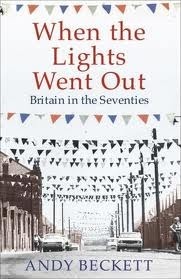What do you think?
Rate this book


592 pages, Hardcover
First published May 7, 2009
At the least, a very seventies dread has seeped back into how people in Britain and other rich countries see the world. Economic crises, floods, food shortages, terrorism, the destruction of the environment: these spectres, so looming in the seventies, did not go away during the eighties and nineties; yet they faded – they were often quite easy to forget about. Now that they have returned to haunt newspaper front pages almost daily, it is possible to wonder how many of Britain’s seventies problems were ever really solved.
These days Britons no longer mourn their empire. They are more comfortably European. They are more relaxed about race, sexuality and gender. Their government is no longer fighting a war in Ulster. The British population is rising rather than falling. The feel of national life is more feverish than entropic. The look of things is gaudy and skin-deep, rather than heavy, worn-out and grey.